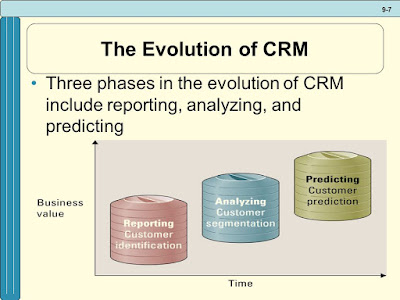CHAPTER 14 (MGT300)
CREATING
COLLABORATIVE PARTNERSHIP
Teams, Partnership
and Alliances
· Organizations create and use teams, partnership and alliances to:
-
Undertake new initiatives
-
Address both minor and major problems
-
Capitalize on significant opportunities
· Create teams, partnership and alliances both internally with employees
and externally with other organizations
· Collaboration System- supports the work of teams by facilitating the
sharing and flow of information
· Organizations form alliances and partnership with other organizations
based on their core competency
-
Core competency- an organizations key
strength, a business function that it does better than any of its competitors
-
Core competency strategy- organizations
chooses to focus specifically on its core competency and forms partnership with
other organizations to handle nonstrategic business processes
· Information technology can make a business partnership easier to
establish and manage
-
Information partnership- occurs when
two or more organizations cooperate by integrating their IT systems, thereby
providing customers with the best of what each can offer
Collaboration Systems
· Two categories of collaboration
1.
Unstructured collaboration (information
collaboration)
2.
Structured collaboration (process
collaboration)
· Collaboration systems include:
-
Knowledge management system
-
Content management system
-
Workflow management system
-
Groupware system
Knowledge Management Systems
· Knowledge management (KM)- involves capturing, classifying, evaluating,
retrieving and sharing information assets in a way that provides context for
effective decisions and actions
· Knowledge management system- supports the capturing and use of an
organizations “know-how”
Explicit and Tacit
Knowledge
· Explicit knowledge- consists of anything that can be documented,
achieved and codified often with the help of IT
· Tacit knowledge- knowledge contained in people’s head
· The following are two best practices for transferring or recreating
tacit knowledge
-
Shadowing
-
Joint problem solving
Reasons why organizations launch knowledge management programs
KM Technologies
- · Knowledge management systems include:
-
Databases
-
Expertise tools
-
E-learning applications
-
Discussion and chat technologies
-
Search and data mining tools
KM and Social Networking
- Social networking analysis- a process of mapping a groups contacts to identify who knows whom and who works with whom
Content Management
- · Content management system (CMS)- provides tools to manage the creation, storage, editing and publication of information in a collaborative environment
- · CMS marketplace include:
-
Document management system
-
Digital asset management system
-
Web content management system
Working WIKIS
- · Wikis- Web-based tools that make it easy for users to add, remove and change online content
- · Business wikis- collaborative web pages that allow users to edit documents, share ideas or monitor the status of a project
Workflow Management Systems
- · Workflow- defines all the step or business rules from the beginning to end required for business process
- · Workflow management systems- facilitates the automation and management of business processes and controls the movement of work through the business process
- · Messaging-based workflow system- sends works assignments through and e-mail system
- · Database-based workflow system- stores documents in a central location and automatically asks the team members to access the document when it is their turn to edit the document
Groupware Systems
· Groupware technologies
· Groupware- software that supports team interaction and dynamics
including calendaring, scheduling and videoconferencing
Videoconferencing
- · A set of interactive telecommunication technologies that allow two or more locations to interact via two-way video and audio transmission simultaneously
Web Conferencing
- · Blends audio, video, and document-sharing technologies to create virtual meeting rooms where people “gather” at a password-protected Web site
Instant Messaging
- · Type of communications service that enables someone to create a kind of private chat room with another individual to communicate in real-time over the internet




Comments
Post a Comment